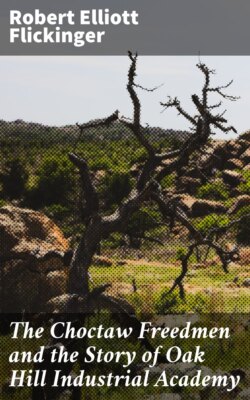Читать книгу The Choctaw Freedmen and the Story of Oak Hill Industrial Academy - Robert Elliott Flickinger - Страница 84
На сайте Литреса книга снята с продажи.
THE INQUISITION
ОглавлениеIn 1235, Pope Gregory IX, establishes the Inquisition, a cruel court of inquiry for the suppression of those who question the authority of the papacy to rule over them in the church. It becomes very active in Italy, France, Spain, Portugal and Ireland. It is not suppressed in France until 1834, after a period of six centuries.
In 1540, Ignatius Loy o la, an illiterate Spanish soldier and priest, with papal authority, organizes the society of the Jesuits, to require Christians to renounce whatever opinions may separate them, and, accepting the doctrines and worship of the Roman Catholic church to acknowledge the pope as Christ's sole vicegerent on earth.
The Inquisition had previously proved a bloody court but this order is intended to make it more effective in suppressing freedom of thought and action in matters relating to education and religion.
The events that occur during the period of the Inquisition are harrowing to relate. The historians of that period have recorded, among others, the following executions and massacres.
The duke of Alva, a Spanish general and persecutor who died in 1582, condemned 36,000 of his countrymen to be executed.
On the night of August 24, 1572, the anniversary of St. Bartholomew, Charles IX, of France, by offering his sister in marriage to the prince of Navarro, a Huguenot, assembles at the nuptials in Paris five hundred of the most prominent of the Huguenots, including Admiral Coligny, their venerable leader, and, at a given signal an unparalleled scene of horror ensues. Before the break of day, these noble leaders and 10,000 of their faithful followers, in Paris that night, are ruthlessly slaughtered. The horrid carnage, against these defenceless friends of truth and right, is extended to Lyons, Orleans, Rouen and other cities until 50,000 are massacred at this particular time. The total loss of France by the Inquisition has been estimated at 100,000 persons.
It is estimated that, during a period of seven years Pope Julius II effected the massacre of 200,000 persons. The Irish massacre at Ulster in 1641 cost Ireland the loss of more than 100,000 of her best citizenship. It is estimated that during a period of thirty years as many as 900,000 persons suffered martyrdom for the truth at the hands of the secret order of Jesuits. During the entire period of persecution by the papacy, a vast multitude, numbering many millions in addition to these, were proscribed, banished, starved, suffocated, drowned, imprisoned for life, buried alive, burned at the stake or assassinated.[1]
These dark historic events illustrate the price that had to be paid for letting the light shine when darkness prevailed in the high places of the world. Every martyr for the truth was a torch bearer, whose light was extinguished. The countries that suffered the greatest loss of their best citizenship received a check of more than a century's growth. The hand on the dial of progress was turned backward wherever the blighting inquisition was felt. Its blighting effects may yet be seen in Italy, Spain, Portugal, Ireland and other countries where the papacy exerts a controlling influence. Men, whose deeds are evil and they are unwilling to repent, hate the light and endeavor to suppress it, by killing the torch bearer, "lest their deeds should be reproved."
A knowledge of these conditions that prevailed at the time is necessary to enable one to appreciate the importance and greatness of the work of the Reformers and their faithful followers during the 16th century in giving the Bible to the people at the risk of their lives.
